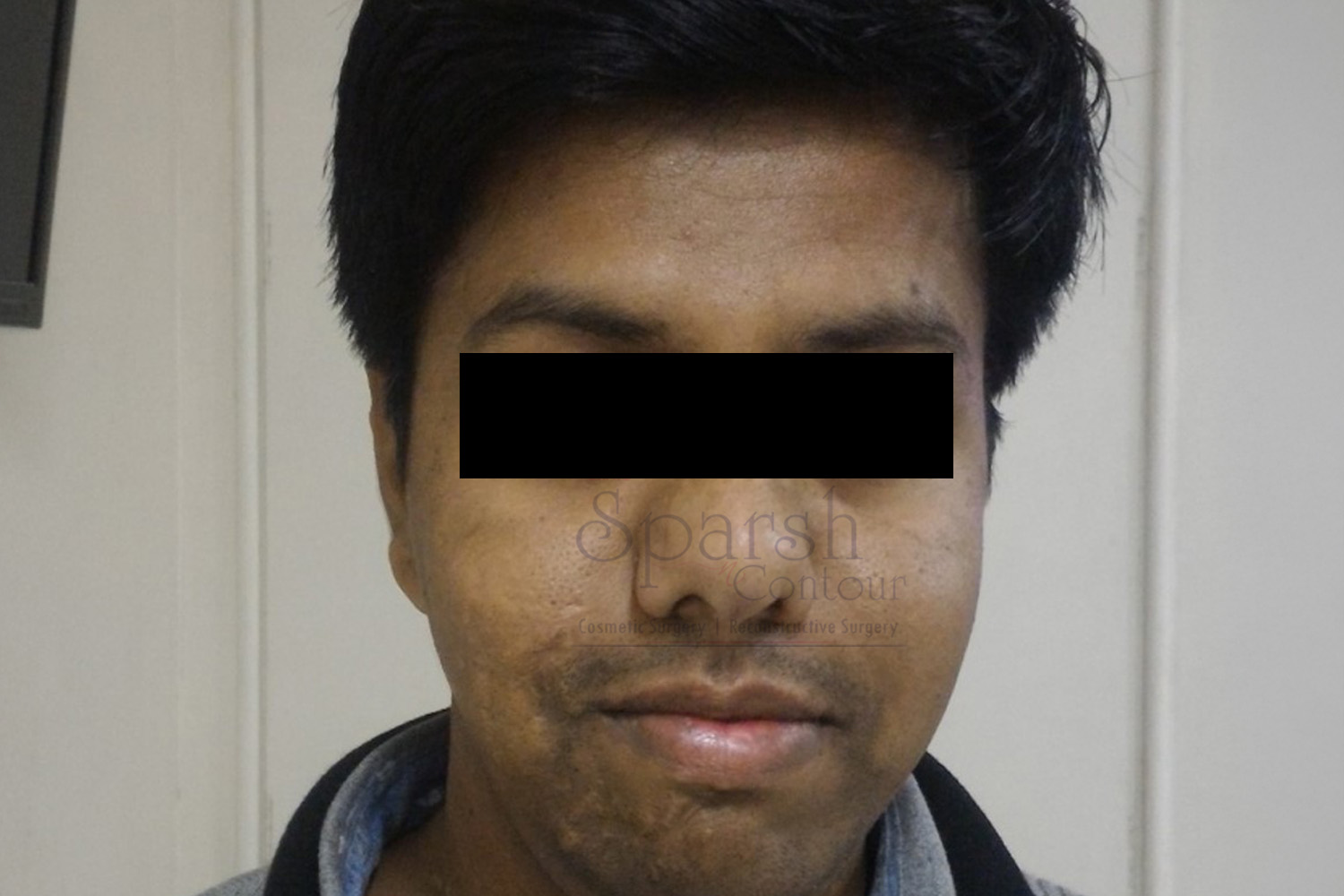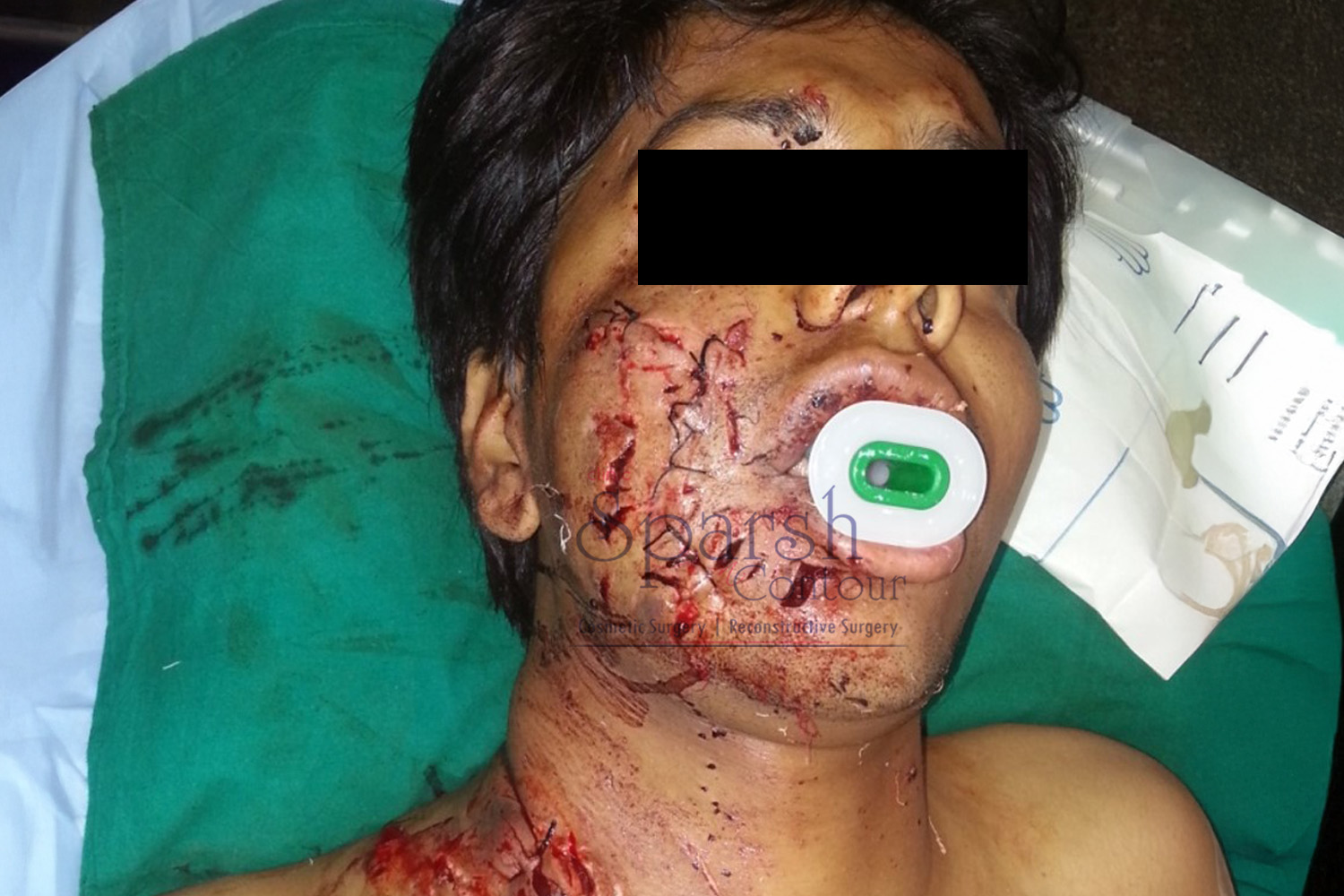Facial Surgery
Cranio Maxillofacial Surgery
Cranio-maxillofacial surgery is a specialized field of surgery focusing on the treatment and reconstruction of conditions affecting the skull, face, and jaw. This branch of surgery addresses a broad range of issues, including congenital deformities, trauma, tumors, and diseases affecting the craniofacial complex. The scope of cranio-maxillofacial surgery encompasses procedures to correct facial deformities such as cleft lip and palate, reconstruct facial injuries from accidents, and address abnormalities in facial bones and soft tissues.
Before surgery, patients undergo thorough evaluations, including imaging studies such as CT scans or 3D reconstructions, to understand the specific challenges and plan the most effective treatment. The surgery itself might involve realigning bones, reconstructing facial tissues, and using implants or grafts to repair and enhance the facial structure. For many patients, cranio-maxillofacial surgery under Dr. Nahar's expertise offers significant improvements, helping them regain confidence and functionality while addressing complex conditions.
Before surgery, patients undergo thorough evaluations, including imaging studies such as CT scans or 3D reconstructions, to understand the specific challenges and plan the most effective treatment. The surgery itself might involve realigning bones, reconstructing facial tissues, and using implants or grafts to repair and enhance the facial structure. For many patients, cranio-maxillofacial surgery under Dr. Nahar's expertise offers significant improvements, helping them regain confidence and functionality while addressing complex conditions.
 After
After  Before
Before Drag
Facial Surgery
What Cranio-maxillofacial surgery is for ?
- Correcting Congenital Deformities: Treating birth defects such as cleft lip and palate, and other craniofacial anomalies that affect the structure and function of the face.
- Reconstructing Facial Injuries: Repairing and reconstructing facial injuries resulting from trauma or accidents, including fractures of the facial bones and severe lacerations.
- Managing Facial Malformations: Correcting deformities in the facial bones and soft tissues, such as those caused by conditions like craniosynostosis or genetic disorders.
- Enhancing Facial Aesthetics: Performing cosmetic procedures to improve facial appearance, symmetry, and overall aesthetics, which can also involve facial reconstruction and enhancement surgeries.
- Improving Functionality: Restoring or enhancing functions such as chewing, speaking, and breathing, which may be impaired due to structural abnormalities or injuries.
- Management of Facial Nerve Disorders: To restore or enhance facial movement and symmetry in cases of nerve damage.
our expert answers
frequently asked questions
What conditions can cranio-maxillofacial surgery treat?
This surgery can treat a variety of conditions including cleft lip and palate, facial fractures, tumors, craniosynostosis, and facial deformities. It also includes cosmetic procedures to improve facial appearance and function.
How is cranio-maxillofacial surgery performed?
The surgery involves detailed planning, often using imaging studies such as CT scans and 3D reconstructions. Techniques may include bone realignment, tissue reconstruction, and the use of implants or grafts to achieve desired outcomes.
What is the recovery process like after cranio-maxillofacial surgery?
Recovery varies depending on the procedure. Generally, it involves a period of healing that may include pain management, physical therapy, and follow-up appointments to monitor progress and address any complications.
How long does it take to see results from cranio-maxillofacial surgery?
Results can vary based on the type of surgery. Some improvements may be noticeable immediately, while others may take several weeks or months to fully manifest as swelling subsides and healing progresses.
What should I expect during the consultation for cranio-maxillofacial surgery?
During the consultation, the surgeon will review your medical history, perform a physical examination, and discuss your goals and concerns. Imaging studies may be ordered to plan the surgical approach and determine the best course of action.
How do I prepare for cranio-maxillofacial surgery?
Preparation may include preoperative tests, fasting before surgery, and arranging for post-surgery care and support. Your surgeon will provide specific instructions based on your individual needs and the planned procedure.
APPOINTMENT
